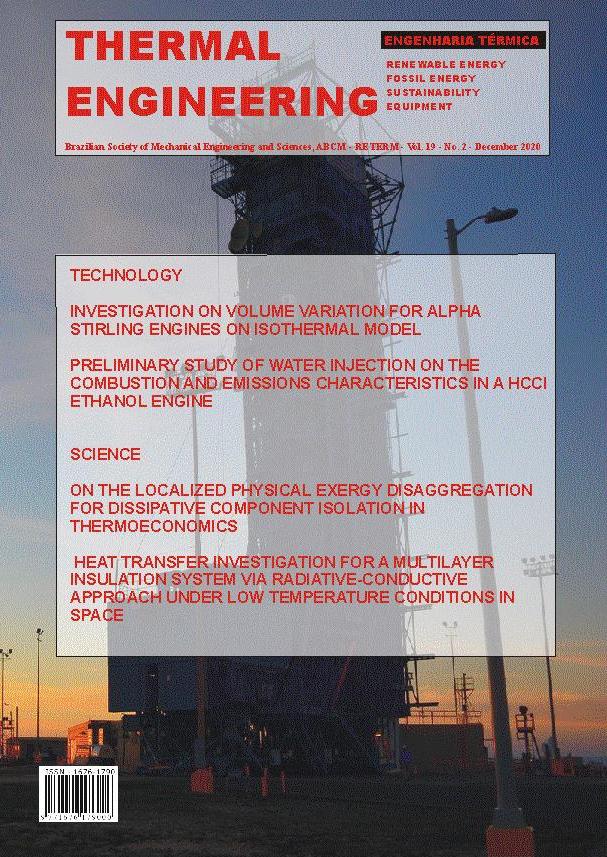ALTERNATIVE DESIGN AND ECONOMIC FEASIBILITY OF AN EXPERIMENTAL WHR FOR INTAKE AIR CONDITIONING OF A LARGE INTERNAL COMBUSTION ENGINE
DOI:
https://doi.org/10.5380/reterm.v19i2.78611Keywords:
waste heat recovery, internal combustion engine, absorption chiller, intake air conditioning, economic feasibilityAbstract
This work presents an alternative design for an experimental waste heat recovery thermal system to be coupled to a large turbocharged internal combustion engine for combustion air conditioning. The goal is to carry out a design of a new thermal system under restricted economic requirements for one of the generators set of Luiz Oscar Rodrigues de Melo Thermoelectric Power Plant. Thereby, a comparison with the original proposal from previous works is also developed in order to demonstrate the differences in terms of thermo-economic design parameters. The waste recovery thermal system produces sufficient chilled water through a single-effect absorption chiller, powered by hot water which is produced by recovering the exhaust gases residual heat to supply cooling applications on the combustion air. The results showed a significant reduction for the chiller capacity demand, from 550 to 185 RT, that would be enough to provide chilled water for 98.72% of the analyzed operation historical period. The economic feasibility indicators reveal the proposal for the alternative waste heat recovery system as the best financial option, presenting a lower investment cost (US$316,793.27 of savings) and a time for capital recovery of 2.14 years, 1.61 years shorter when compared with the initial WHR system.
Downloads
Published
How to Cite
Issue
Section
License
Direitos Autorais para artigos publicados nesta revista são do autor, com direitos de primeira publicação para a revista. Em virtude da aparecerem nesta revista de acesso público, os artigos são de uso gratuito, com atribuições próprias, em aplicações educacionais e não-comerciais.



